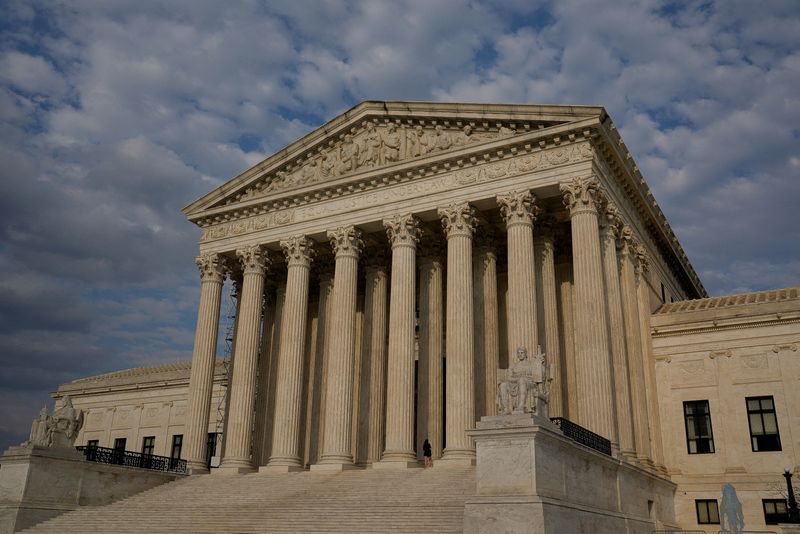By Andrew Chung and John Kruzel
WASHINGTON (Reuters) - The U.S. Supreme Court on Friday made it easier to challenge the regulatory power of federal agencies in two important rulings backing Axon Enterprise (NASDAQ:AXON) Inc's bid to sue the Federal Trade Commission and a Texas accountant's gripe with the Securities and Exchange Commission.
A 9-0 ruling by the justices revived Axon's lawsuit contesting the constitutionality of the FTC's structure in a bid to counter an antitrust action related to the Scottsdale, Arizona-based company's acquisition of a rival, overturning a lower court's decision to dismiss the case.
The justices also unanimously upheld a lower court's decision allowing the accountant, Michelle Cochran, to sue the SEC, challenging the legality of its in-house judges, after the agency faulted her audits of publicly traded companies.
At issue in both cases was whether targets of an agency's enforcement action may challenge its structure or processes in a federal district court or must first endure the agency's administrative proceeding, which may be costly and time consuming.
Two laws, the Federal Trade Commission Act and the Securities Exchange Act, funnel judicial review of adverse agency orders to federal appeals courts only after those orders become final.
"We now conclude that the review schemes set out in the Exchange Act and the FTC Act do not displace district court jurisdiction over Axon's and Cochran's far-reaching constitutional claims," liberal justice Elena Kagan wrote in the ruling.
The FTC's role is to protect consumers against anticompetitive and fraudulent business practices. The SEC's job is to maintain fair, orderly markets and enforce investor protection laws.
Paring back the regulatory authority of federal agencies - which can enforce laws and rules in important areas such as energy, the environment, climate policy and workplace safety - has been a major goal of many business and conservative groups, which complain about what they call the "administrative state."
The Supreme Court's conservative justices have signaled wariness toward expansive federal regulatory power and the previously recognized duty of judges, under Supreme Court precedent, to give deference to that authority.
This skepticism was reflected in separate concurring opinions issued on Friday by conservative Justices Clarence Thomas and Neil Gorsuch.
Federal agencies have had their powers curtailed in recent Supreme Court rulings.
A ruling last year limited the Environmental Protection Agency's authority to issue sweeping regulations to reduce carbon emissions from existing coal- and gas-fired power plants under the landmark Clean Air Act anti-pollution law. A 2021 ruling made it harder for the FTC to force scam artists and companies that engage in deceptive business practices to return ill-gotten gains to consumers.
Axon sued the FTC in 2020 in federal court in Arizona following an investigation by the agency into its 2018 acquisition of Vievu, a rival body-camera provider.
The company said the agency acts as "prosecutor, judge and jury" in violation of the U.S. Constitution's Fifth Amendment guarantees of due process and equal protection under the law, and that its administrative law judges are unlawfully insulated from the president's power to control executive branch officers under the Constitution's Article II.
The San Francisco-based 9th U.S. Circuit Court of Appeals in 2021 threw out Axon's case, ruling that under the FTC Act the company must raise its claims in the administrative proceeding first.

In Cochran's case, an SEC judge found that she failed to comply with auditing standards, fined her $22,500 and banned her from practicing as an accountant before the commission for five years. Cochran sued in 2019 to stop the enforcement action, like Axon contesting the SEC's in-house judges under Article II.
A federal judge in Texas threw out Cochran's challenge, but the New Orleans-based 5th U.S. Circuit Court of Appeals in 2021 revived the case.